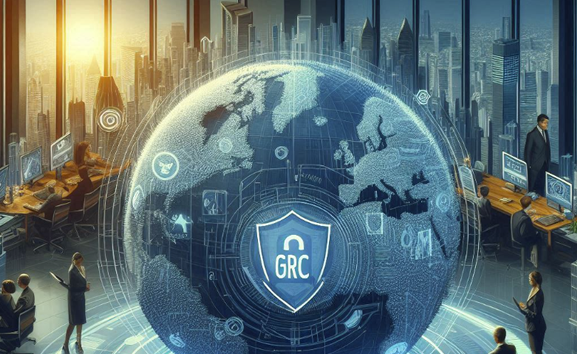The Importance of GRC and Cyber GRC in Modern Organizations

In today’s dynamic business environment, the complexities of managing operations, ensuring compliance, and securing data have grown exponentially. This is where Governance, Risk, and Compliance (GRC) and its specialized offshoot, Cyber GRC, come into play. These frameworks are essential for modern organizations to navigate the intricate web of regulations, risks, and security challenges they face.
Understanding GRC
Governance, Risk, and Compliance (GRC) refers to the integrated collection of capabilities that enable an organization to reliably achieve objectives, address uncertainty, and act with integrity. Here’s a closer look at each component:
- Governance: This involves establishing a framework of policies, procedures, and practices to ensure that an organization’s actions align with its goals and values. Good governance ensures that decision-making processes are transparent and that resources are used efficiently.
- Risk Management: This is the process of identifying, assessing, and controlling threats to an organization’s capital and earnings. These risks could stem from various sources, including financial uncertainties, legal liabilities, strategic management errors, accidents, and natural disasters.
- Compliance: This ensures that an organization adheres to all laws, regulations, guidelines, and specifications relevant to its business. Effective compliance programs help prevent legal penalties, financial forfeiture, and damage to reputation.
The Role of Cyber GRC
As the digital landscape expands, so do the risks associated with cyber threats. Cyber GRC is a subset of the broader GRC framework that focuses specifically on cybersecurity risks and compliance. Here’s why Cyber GRC is becoming increasingly critical:
- Increasing Cyber Threats: The frequency, sophistication, and impact of cyber attacks are on the rise. Cyber GRC helps organizations identify potential threats, implement security measures, and respond effectively to incidents.
- Regulatory Requirements: With regulations like GDPR, CCPA, and HIPAA imposing stringent data protection requirements, organizations must ensure their cybersecurity practices comply with these laws. Cyber GRC frameworks provide a structured approach to achieve and maintain compliance.
- Data Protection: In an era where data is a valuable asset, protecting it against unauthorized access and breaches is paramount. Cyber GRC frameworks help organizations implement robust data protection measures, ensuring the confidentiality, integrity, and availability of information.
- Operational Resilience: Cyber GRC ensures that organizations can withstand and recover from cyber incidents. This includes having incident response plans, disaster recovery protocols, and business continuity strategies in place.
Benefits of Implementing GRC and Cyber GRC
- Holistic View of Risks: GRC and Cyber GRC provide a comprehensive view of the organization’s risk landscape, enabling more informed decision-making. This holistic approach ensures that risks are managed proactively rather than reactively.
- Enhanced Compliance: With a structured framework in place, organizations can efficiently manage compliance with multiple regulatory requirements, reducing the risk of legal penalties and reputational damage.
- Improved Efficiency: GRC frameworks streamline processes and eliminate redundancies, leading to operational efficiencies. This is particularly beneficial in large organizations with complex operations.
- Better Resource Allocation: By understanding risks and compliance requirements, organizations can allocate resources more effectively, focusing on areas with the highest impact on business objectives.
- Increased Trust and Reputation: Demonstrating robust GRC and Cyber GRC practices builds trust with customers, partners, and stakeholders. It shows a commitment to ethical practices, security, and regulatory compliance.
Conclusion
In a world where business operations are increasingly digital and interconnected, the importance of GRC and Cyber GRC cannot be overstated. They provide the necessary frameworks for managing risks, ensuring compliance, and protecting against cyber threats. By implementing robust GRC and Cyber GRC practices, organizations can not only safeguard their assets but also drive growth, innovation, and long-term success.
As cyber threats evolve and regulatory landscapes shift, investing in GRC and Cyber GRC will remain a critical priority for organizations striving to maintain resilience and integrity in the face of uncertainty.